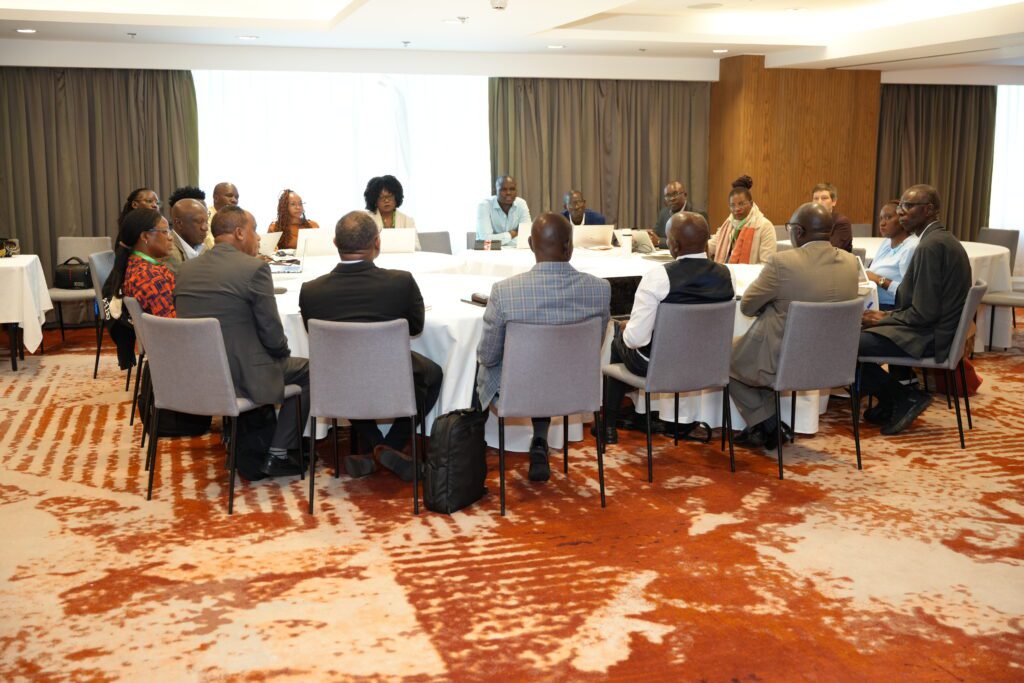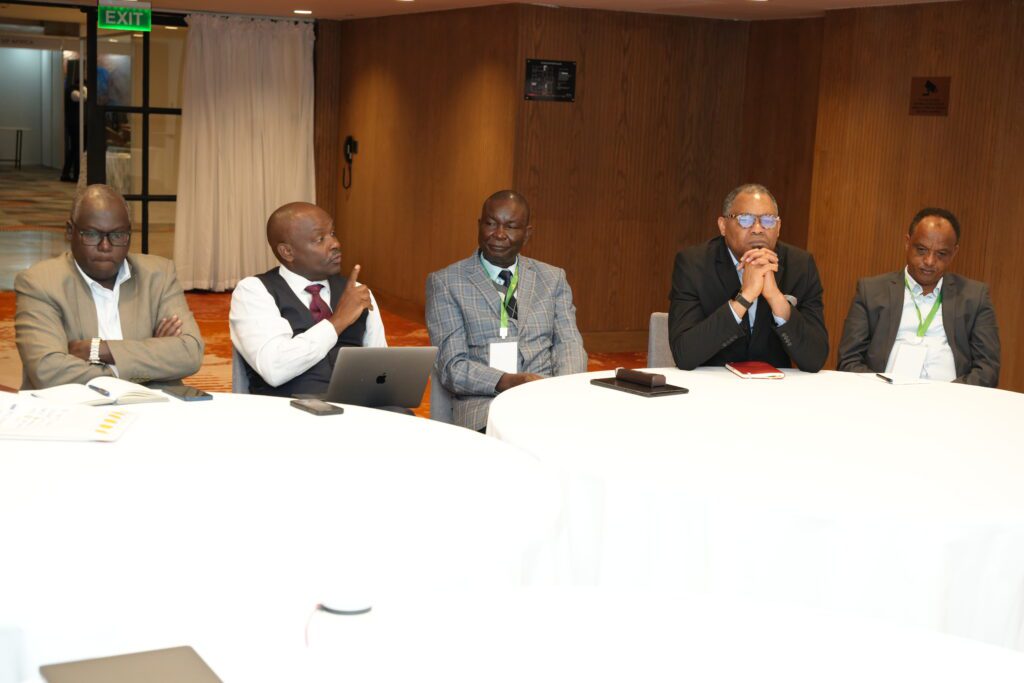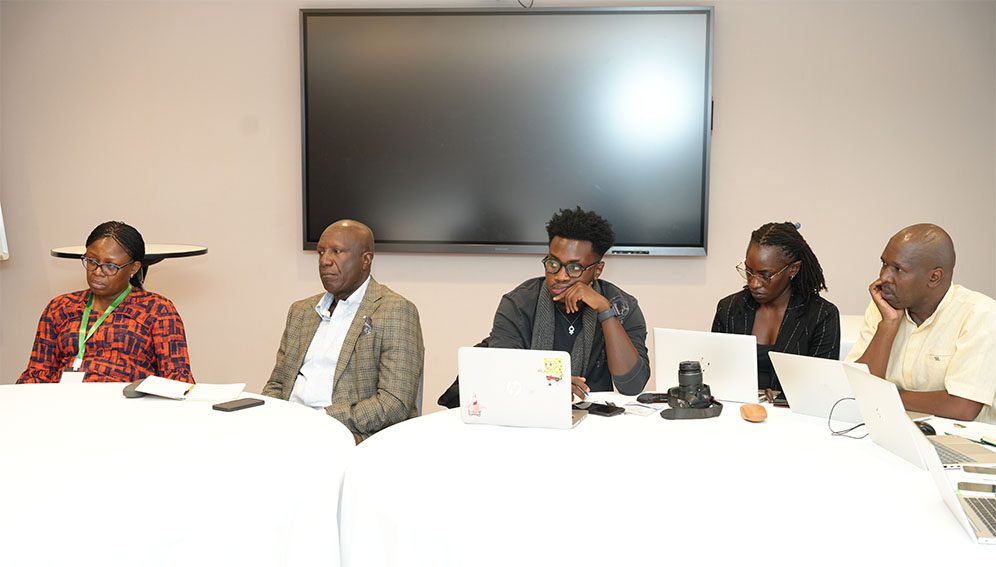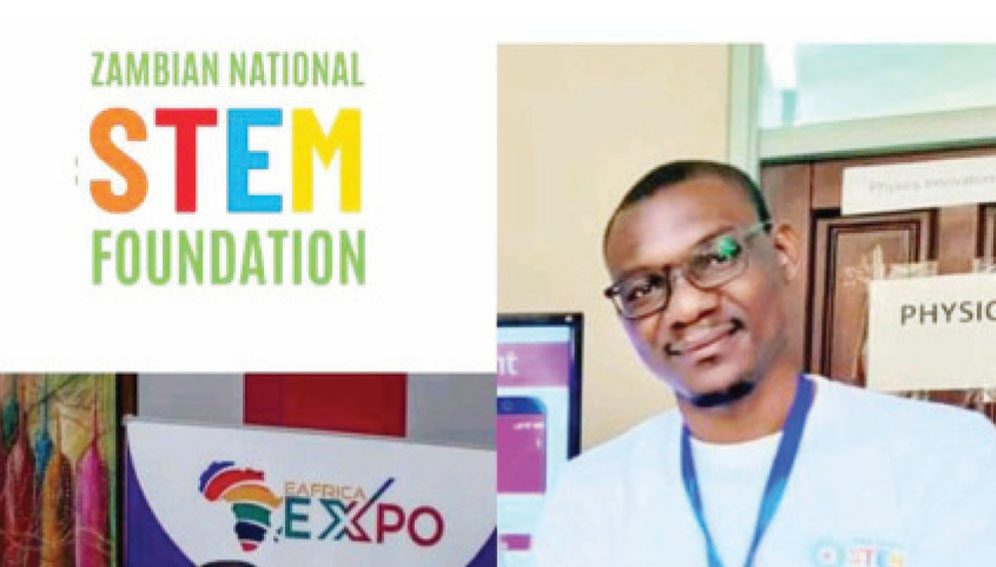SGCI News
African countries are making progress towards the Sustainable Development Goals (SDGs). Over the past years, innovation and research capacities have grown across the continent. However, the commercialization of these innovations…
African countries are making progress towards the Sustainable Development Goals (SDGs). Over the past years, innovation and research capacities have grown across the continent. However, the commercialization of these innovations remains a major challenge. How can African countries best turn research into real-world products and services?
One promising path is strengthening Public-Private Partnerships (PPPs). This was the focus of a side event organized by the African Centre for Technology Studies (ACTS) in the margins of the Evidence for Development (Evi4Dev) Conference. The PPP side event aligned with the Conference’s theme: “Optimizing the Role of Data, Evidence, and Innovations in Africa’s Efforts to Create Wealth, Empower Citizens and Foster Responsive and Inclusive Governance”. It brought together speakers from Science Granting Councils (SGCs), academia, business, and government.
The session was supported by the Science Granting Councils Initiative (SGCI) and examined the role of SGCs. How can they further empower institutions and researchers? How can they scale innovations and attract private investment? How can they improve the socioeconomic impact of public research?
Led by ACTS and partners, SGCI has funded over 82 innovation and research projects. This includes 23 PPP-focused initiatives. The work has concentrated on priority sectors for the economy and society. However, despite these efforts, the commercialization of research outcomes and the development of PPPs remain a hurdle. In this blog, we look at key discussions from the event.
What are Public-Private Partnerships, and what are their benefits and challenges?
PPPs are collaborative agreements between government or public entities and private companies. They turn research into practical applications, sharing the financial risks of big projects and aligning innovation with economic and social needs.
However, many innovation policies in Africa place too much emphasis on knowledge supply. They focus on public research funding rather than business. They do not always give equal attention to demand from industry and the private sector. The Evi4Dev session addressed this imbalance. The speakers explored strategies for better aligning research outputs with end-users. Almost all of the speakers highlighted a lack of policy frameworks to connect science and practice as a key challenge. While research is often emphasized, less focus is given to translating knowledge into enterprises and real-world applications.
Aligning with Evi4Dev 2025’s theme
The PPP side event fitted firmly within the Evi4Dev Conference’s core theme. It showcased real-world examples of successful PPPs. In addition, it provided a clear definition of PPPs and showed how research institutions and universities can leverage them for technology transfer and commercialization.
The discussion also focused on strategic approaches to attract and sustain private sector involvement. Speakers explored ways to build the capacity of institutions and researchers. They considered how to bring innovations to market while addressing common barriers associated with PPPs. The session aimed to share lessons learned and best practice, and speakers drew on experiences from across the continent. Five main points became evident during discussions.

1. Developing policy frameworks
Developing policy frameworks that embed research in national and regional development strategies is critical. Clear policies on technology development and transfer are needed. Moreover, innovation and science must be embedded within national development strategies. Speakers highlighted how incentives and policy intermediaries play an important role. We must identify priority technologies and create policy tools that support them. Researchers cannot manage the full commercialization journey alone, and intermediaries are essential for bridging fragmented innovation systems and supporting coordination among stakeholders. Within universities, structured frameworks can support commercialization. Institutions must create clear pipelines and value chains to move research from the lab to the market.
2. Linking academia and industry
We must emphasize collaboration between researchers and the private sector in its broader sense. Early engagement at the onset of research must occur to ensure partnerships remain equitable. Commercializing research is a collaborative effort, and we must harmonize expectations for co-creation. We can learn from the experiences of SGCs. Ugandan researchers are transforming discarded banana stems into fibres to make, among other things, textiles. The initiative positions the country in a growing global market for sustainable materials.
There are many benefits to bridging academia and industry. While public organizations create innovations, the private sector can play a pivotal role in transitioning ideas from laboratories to market-ready solutions. Academic publications are important, but they are not the end goal. Success should not be measured by scientific outputs alone but also by the number of enterprises created through research. True impact lies in applying research to address real-world challenges. Sectors such as agriculture, climate change, energy, health, and WASH are essential to Africa’s development. We need stronger commercialization and technology transfer strategies aligned with national frameworks such as the AU Agenda 2063 and STISA-2024.

3. Establishing enabling structures for commercialization
Speakers focused on how we must establish enabling structures for commercialization. These include procedures for incentives, institutional readiness assessment and technology transfer. Commercialization is challenging, and many hurdles exist, including incentive, policy, and structural barriers. High transactional costs, such as levies and taxes, are a further issue. Researchers may also struggle to capture value from intellectual property due to prohibitive costs.
Nevertheless, commercialization remains essential for Africa’s development. To overcome challenges, we need early and inclusive involvement of businesses, communities and other key stakeholders in the research process. We must convince researchers that their ideas can and should be commercialized. Developing innovative enterprises is a collaborative effort and, as such, requires a shift in mindset from researcher to research-based entrepreneur. Co-founders with excellent negotiation skills and sector-specific strategies for success are a boon. In addition, we should use modelling tools to test market readiness before scaling up. Success relies on strengthening infrastructure, leadership, and policy.
4. Embracing evidence-driven commercialization
Funding, infrastructure and skills are key enablers of successful research commercialization. However, to increase the likelihood of success, we must adopt evidence-driven approaches to commercialization. Research shows that only about five out of every 1,000 commercialization projects succeed. Start-ups founded on research tend to have higher success rates. We need robust commercialization teams, equitable partnerships and milestone-based funding. Moreover, structured tools can better assess project readiness.
5. Broadening innovation narratives
Speakers challenged conventional innovation narratives. They called for them to be reimagined and cautioned against limiting definitions of innovation. Overlooking creative industries, for example, could limit Africa’s commercialization potential. We need a broader, context-sensitive understanding of innovation and well-supported institutional frameworks to drive commercialization.
Conclusion and key takeaways
The event highlighted a number of key takeaways, notably that deploying research is just as vital or more vital than generating it. Commercialization and real-world application must be prioritized. Co-creation, dialogue and empowerment will be critical. How we define innovation and fund projects will make all the difference. With the right actions, the potential success of research-based start-ups and PPPs can be fully realized.
Speakers pointed out that research translation should be viewed as an ongoing, iterative process, not a one-time endpoint. Moreover, effective commercialization must be continuous, inclusive, and strategically embedded across all levels of innovation systems. Translating research into practical impact is often treated as an afterthought in project design. Instead, the potential use of research should guide the project from the outset. It is important to integrate Africa’s largely informal private sector into commercialization efforts in order to enhance effectiveness. In this way, PPPs can lead to more effective implementation of research into initiatives for economic and social benefit.
Additional information
For more on Public-Private Partnerships, see:
For more information about the Evi4Dev Conference, see:
This article is based on a side event hosted by the African Centre for Technology Studies in Nairobi on 7 May 2025, held on the margins of the Evidence for Development Conference, with contributions from the following panellists:
- Prof. Tom Oganda, Executive Director, ACTS
- Dr. Martin Ongol – Uganda National Council for Science and Technology (UNCST)
- Mrs. Gift Kadzamira – Malawi National Commission for Science and Technology (NCST)
- Ms. Agnes Tsuma – RISA Fund
- Prof. Brando Okolo – AUDA NEPAD
- Dr. Tonny Omwansa – KeNIA
- Prof. Rebecca Hanlin – University of Johannesburg
- Prof. Konte Almamy – University Cheikh Anta Diop de Dakar
Blog contributors: Agnes Lutomiah, Nicholas Odongo, and Alfred Oduor (Research Fellows at the African Centre for Technology Studies).
Related News
Commercializing Research and Innovations through Public-Private Partnerships
African countries are making progress towards the Sustainable Development Goals (SDGs). Over the past years, innovation and research capacities have grown across the continent. However, the commercialization of these innovations remains a major challenge. How can African countries best turn research into real-world products and…
Mozambique government, partners join forces to improve dairy farming
Arnaldo Dimande, a peasant farmer in the region of Machiane, saw a chance to transform his ambition of becoming a milk producer into a reality when a United States Department of Agriculture USDA-funded Land O’Lakes dairy project was launched in the district of Manhica, situated…
Bright Bwalya: Fighting epilepsy with innovation
Bright Bwalya, a Zambian youth, who is among the millions fighting epilepsy, has come up with a device called Seizure Assistant which allows patients to call for help when they are in need.
SGCI funded projects
Rwanda’s integrated approach to sustainable agriculture and nutrition
Project Titles & Institution Areas of Research Number of Projects being funded Project Duration Grant Amount In-Kind Distribution Council Collaboration with other councils





